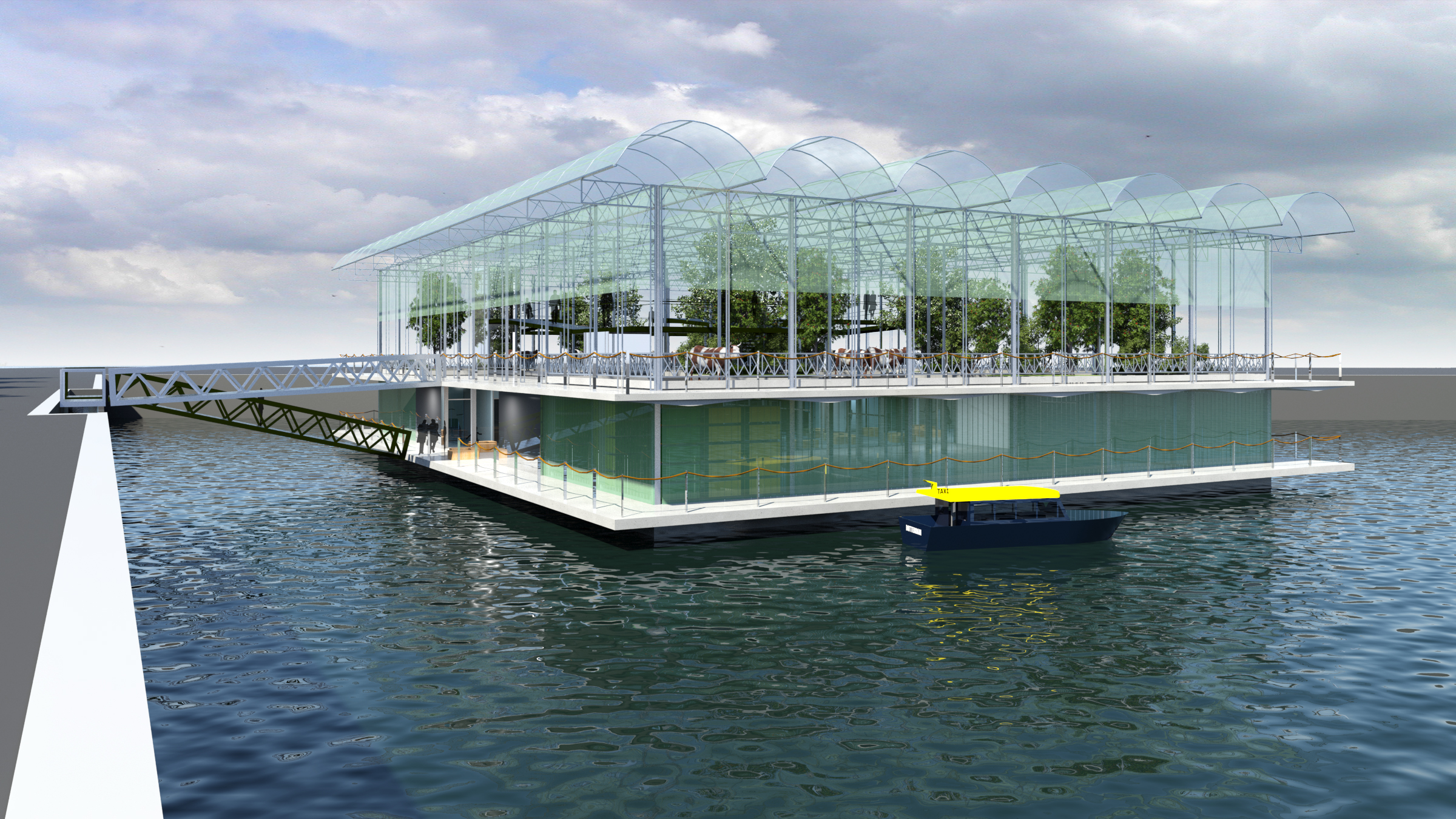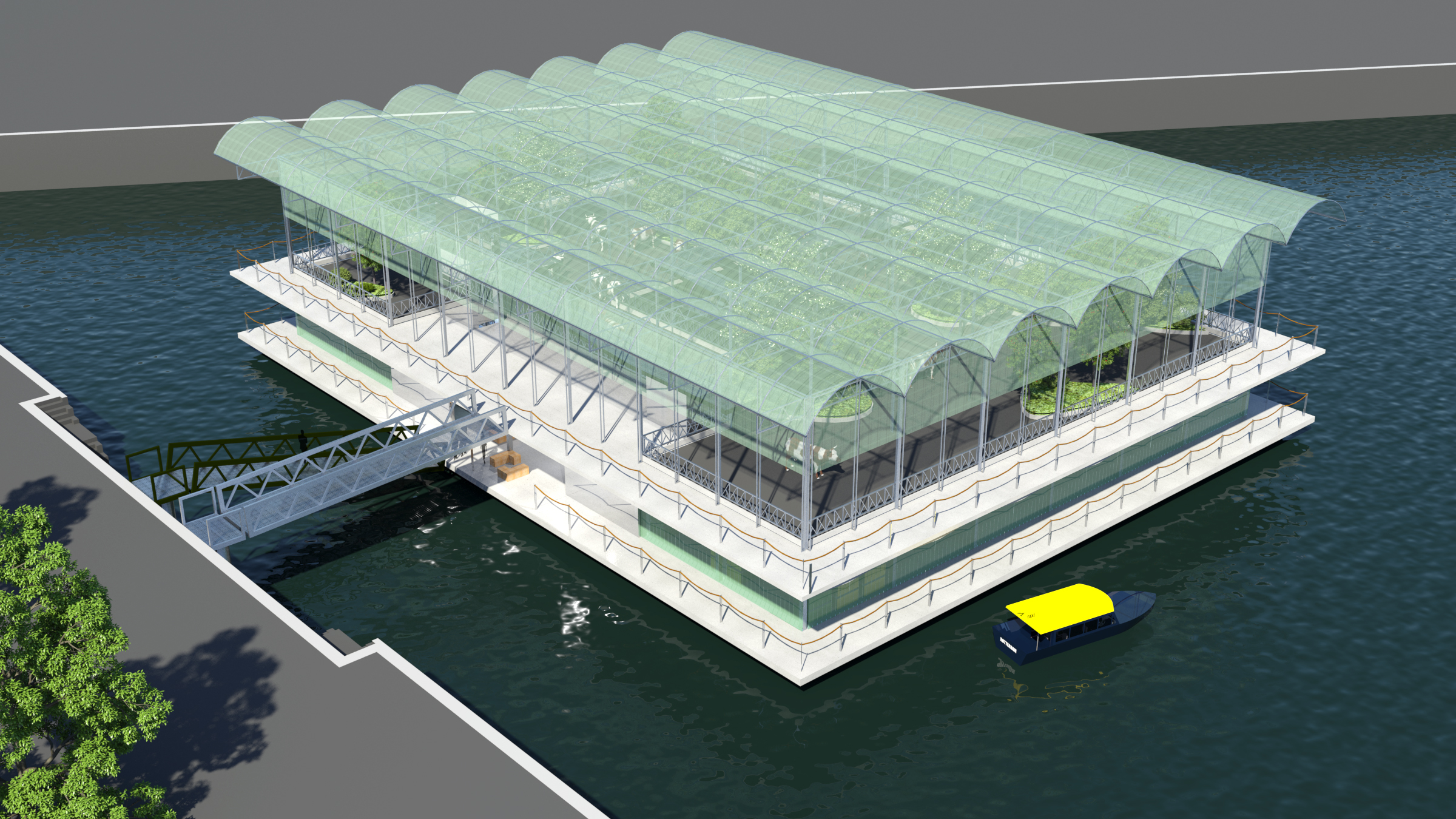A farmer, 40 cows, and robots to collect manure and distribute fodder – all floating on the water of the largest port in Europe. A load of nonsense? Absolutely not! This is all part of the Floating Farm, the first self-sufficient floating farm in the world, which is currently being completed and will shortly begin operation in the Merwe4 Haven of Rotterdam. A great example of innovation and a showcase for sustainability and the circular economy.https://www.youtube.com/watch?v=YL4_ICdO2wALand scarcity, climate change, rapid population growth concentrated in and around the big cities, long distances between the sites of dairy production and consumers leading to increased transport and pollution… ‘All good reasons to bring dairy production as close to consumers as possible’, says Peter van Wingerden, CEO of Beladon and the initiator of the Floating Farm. ‘Increasing numbers of people live in the big cities, far away from the sites of dairy production. A massive amount of transport is required to deliver dairy products to consumers and this represents added pollution and a heavy burden on our infrastructure. If we can find a way to get dairy production off the ground in urban areas, we will be able to reduce both transport and pollution’.In this case ‘getting off the ground’ means both literally and figuratively. That is because the Floating Farm being built by Beladon and a number of partners in Rotterdam is actually floating on the water of the Merwe4 Haven. ‘Many large cities like Rotterdam are situated in delta areas, and in Rotterdam we can also benefit from residual flows from existing sources of production such as the waste products from breweries, mills and potato processing into the bargain. We can integrate these products into our cattle fodder. And eventually, we can all enjoy the milk’, says Peter with a smile.
Circular economy
Circularity is an essential principle for the Floating Farm. Water supply and drainage, generation of energy, waste processing and feeding will all be dealt with in the Floating Farm’s ‘closed system’. The use of solar energy, the production of cattle fodder using LED lighting, the collection of urine and manure for recycling into compost, the cleaning and re-use of rain water; these all mean that the Floating Farm will not leave behind any negative footprint. Science fiction? No, just innovation. Peter adds proudly: ‘There is plenty of science involved. Obviously, the whole concept has been very carefully considered and tested before being developed with the collaboration of many experts and partners into what it is now. And the Floating Farm will be put into use ture!’
Pride
Peter’s pride extends further than the Floating Farm itself; it includes his home city of Rotterdam. ‘Where better than the global port of Rotterdam to nurture such an innovative project? Rotterdam is a living lab for many experimental developments that are implemented worldwide, and as far as we are concerned the city of Rotterdam is the logical site for the Floating Farm. After all, Rotterdam is home to so many international businesses and major projects. There’s the port, with its industry and logistics, as well as the knowledge and research institutes in and around the city and the Westland area with its glasshouse horticulture; all important factors for a development like the Floating Farm. And don’t forget the Rotterdam way of doing things, experimenting and not being afraid to stick your neck out! It’s only by dreaming and daring to act that we will make progress. What could be more Rotterdam than that?’This is an abridged article. You can read the complete article on the Rotterdam Partners website, and if you would like to know more about the Floating Farm, go to this website.Header photo and artists impressions: (c) Beladon
Related brand partners
Media library for this story
No items found


